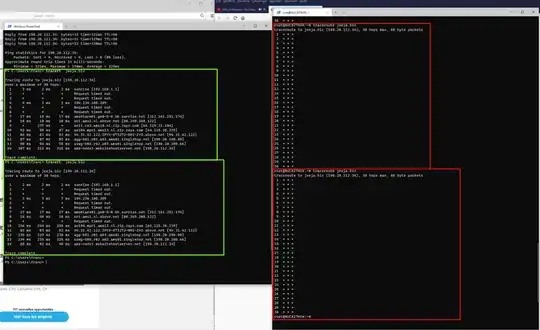Windows' tracert is using ICMP while incrementing TTL to do probes:
How to Use the TRACERT Utility
The TRACERT diagnostic utility determines the route to a destination
by sending Internet Control Message Protocol (ICMP) echo packets to
the destination.
Fedora's traceroute, by default, sends UDP probes, as have been previous Unix traceroute implementations doing. The hint UDP is default (beside having double-checked by doing a capture before writing this answer) is from man which talks first about UDP:
We don't want the destination host to process the UDP probe packets, so the destination port is set to an unlikely value (you can
change it with the -p flag). There is no such a problem for ICMP or
TCP tracerouting (for TCP we use half-open technique, which prevents
our probes to be seen by applications on the destination host).
Both tools expect to receive ICMP TIME EXCEEDED as response to build the route.
Along this path, various routers may choose to answer differently (ie: not at all) depending on the probe method used.
If you know that ICMP probes work better for your test, you can do the same on Fedora with:
traceroute --icmp destination
As ICMP, contrary to UDP, usually requires crafting special packets, the command might require root privileges to run with this option.
